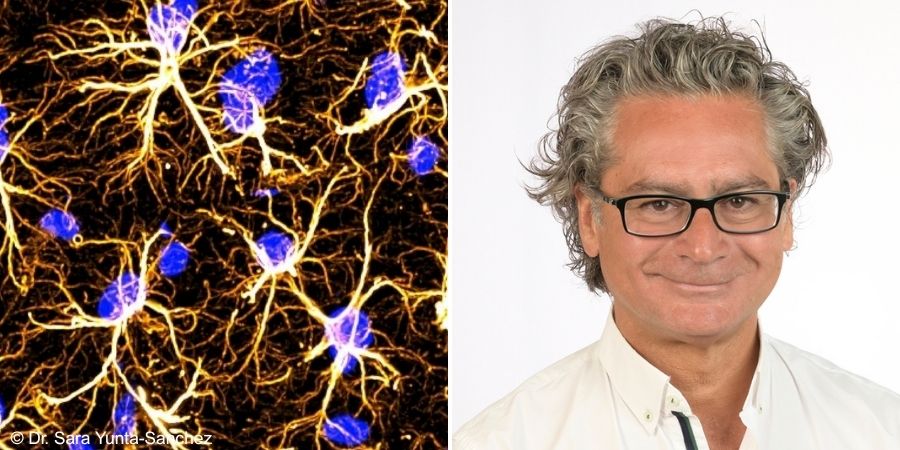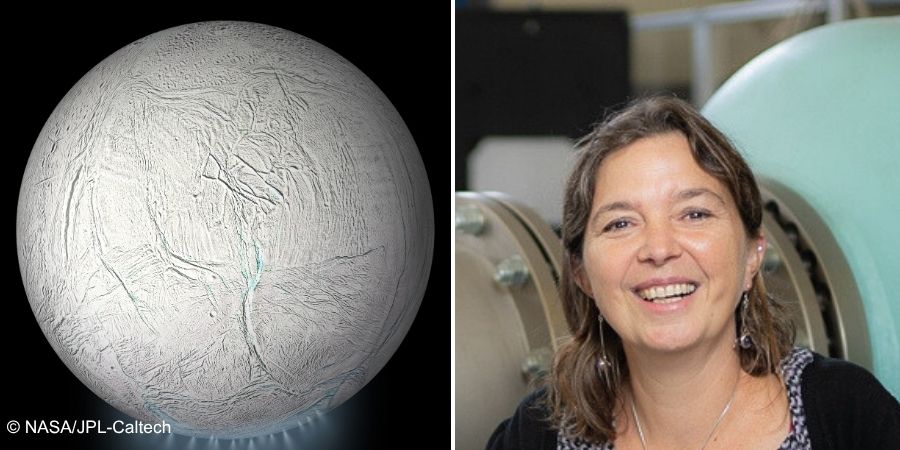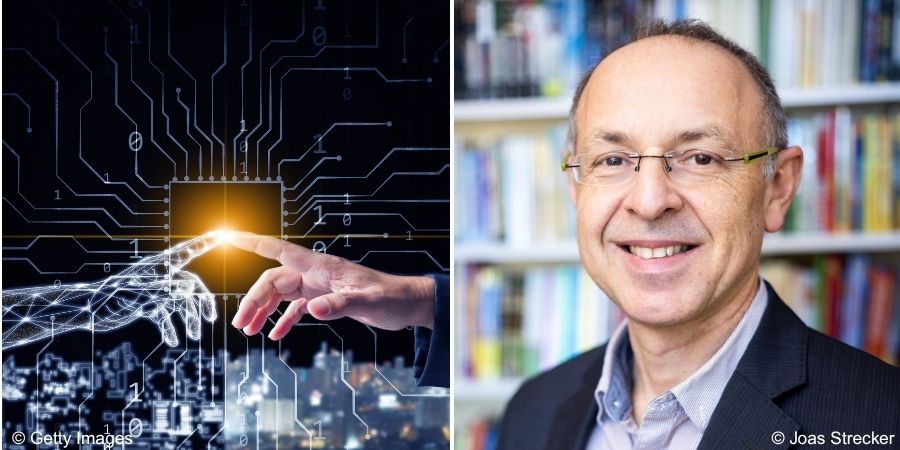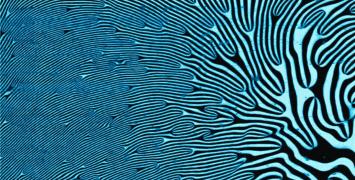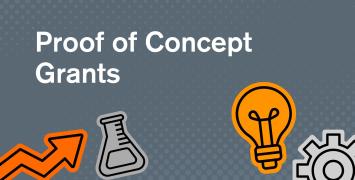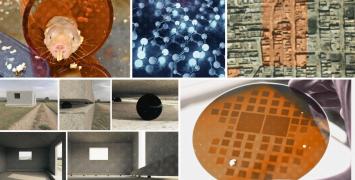Advanced Grants 2024: Examples of projects
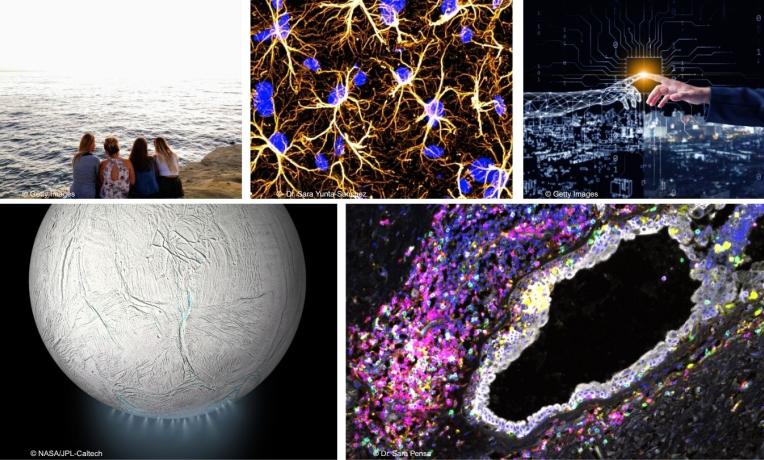
- Researcher: Juan P. Bolaños
- Project: Astrocytic metabolism-driven epigenetics at the cornerstone of cognitive aging (NeuroSTARS)
- Host Institution: University of Salamanca (ES)
- ERC funding: €2.48 million over 5 years
Developing a preventive vaccine for breast cancer
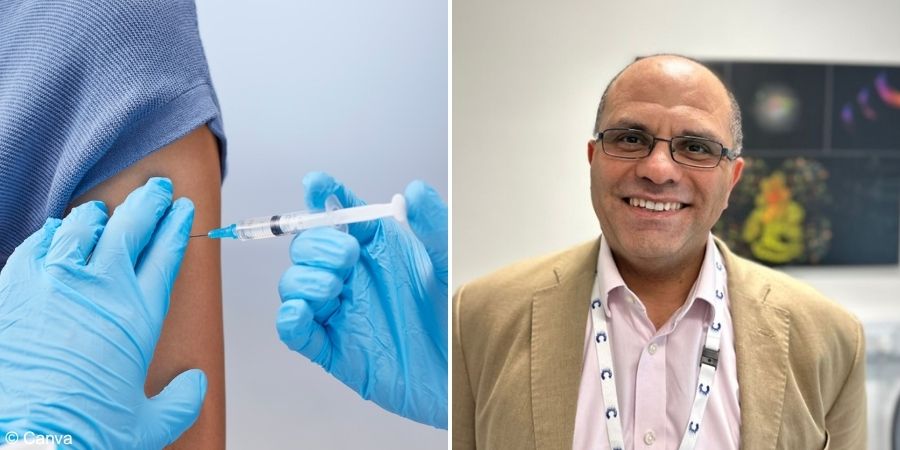
Breast cancer is one of the most common and deadly cancers worldwide. Despite significant advances in immune and targeted therapies, we have yet to find a cure – especially for cancers found at a later stage.
At the University of Cambridge, Walid Khaled and his team are working to understand what happens in the body at a cellular and molecular level before breast cancer develops, especially in people with inherited mutations in certain genes – BRCA1, BRCA2, and PALB2. These are responsible for repairing damaged DNA, and are classified as tumour suppressor genes because, when functioning properly, they help prevent uncontrolled cell growth that can lead to tumour development. Mutations in BRCA1, BRCA2, and PALB2 can therefore lead to a significantly increased risk of developing breast cancer, among other types of cancer.
Using years of research into how breast tissue changes over time, the team will study how these changes lead to the earliest signs of cancer. They plan to test the efficiency of approved and nearly approved drugs in intercepting these changes, aiming to develop a preventive vaccine for people with these specific gene mutations. If successful, this could lead to clinical trials and, in the future, offer a way to stop breast cancer before it develops.
This research will also generate new tools, resources, and data, benefiting others in the search for hereditary cancer prevention, and supporting a wider goal across Europe: to catch cancer earlier, reduce its impact, and help people live longer, healthier lives.
With over 20 years of research experience in cancer biology, Prof. Walid Khaled is a Professor of Tumour Initiation in the Department of Pharmacology and Cambridge Stem Cell Institute at the University of Cambridge.
- Researcher: Walid Khaled
- Project: Understanding Precancerous changes in Breast Cancer for the development of Therapeutic interceptions (PreBRCATx)
- Host Institution: University of Cambridge (UK)
- ERC funding: €2.5 million over 5 years
In our solar system, several moons orbiting Jupiter and Saturn host vast oceans buried beneath kilometres of ice. These hidden oceans are among the most promising environments for hosting extraterrestrial life and have become a priority for upcoming missions led by ESA and NASA.
Although direct access to these oceans is currently not possible, their presence can be inferred indirectly. Ocean water may reach the surface through geysers (plumes), subsurface fluid overflows, or the diffusion of oceanic molecules through the ice. As a result, surface ice may carry crucial information about the ocean below.
Stéphanie Cazaux's newly funded research focuses on understanding how buried oceans interact with the surface of icy moons, identifying potential access pathways, and assessing what surface observations can reveal about subsurface composition and physical conditions. The processes by which ocean material becomes surface ice will be studied both experimentally and theoretically to determine the ice’s characteristics and spectral signatures. These tools will be instrumental in tracking how oceans "leak" onto icy moons' surfaces, understanding the dynamics between oceans and surfaces on icy moons, and in searching for plumes on Europa with missions such as JUICE and Europa Clipper.
Stéphanie Cazaux is currently an associate professor at Aerospace Engineering, Technische Universiteit Delft (TU Delft).
- Researcher: Stéphanie Cazaux
- Project: From Buried Ocean to Surface Ice: Spectral Signatures of Leaking Oceans on Icy Moons (LeakingOceans)
- Host Institution: Technical University Delft (NL)
- ERC funding: €2.46 million over 5 years
Imagine David, a 34-year-old artist and trekking enthusiast, who has recently started using Angelo, an AI twin of his life experience. Angelo, an invented name, could be defined as an evolving, memory-based AI twin that collects David’s journey, thought patterns, decisions and personality, as well as his reactions to the environment. Trained on years of personal data - texts, conversations, images, eye movements, and location - it creates and updates personal and private AI models. Using Angelo gives David access to modern generative AI tools while keeping his individuality.
Newly funded research led by Albrecht Schmidt intends to establish a scientific basis for AI twins of human experience, in other words AI systems that capture and encode the real-world experiences and tacit knowledge of an individual.
Schmidt’s team believes that AI twins can augment human cognitive and social abilities and enhance human executive functions, memory creation and retrieval, metacognition, planning and prioritisation, decision-making, and creativity through highly personalised and private interactive AI models. Through continuous data collection from wearable devices, Schmidt’s team will explore and develop AI-twins as advanced personal systems for storing and processing human experiences and seamlessly aiding human cognitive and creative abilities.
This research intends to pioneer human-AI symbiosis, enabling personal simulations of future scenarios based on one's own experiences, leading to a form of personalised symbiotic intelligence based on authentic, individual, as well as collective human experiences. This project could transform the use of personal data, enabling cognitive augmentation and social connectivity through AI.
Albrecht Schmidt is a professor of computer science at the Ludwig-Maximilians-Universität München (University of Munich) and a member of the German Academy of Sciences Leopoldina since 2020.
- Researcher: Albrecht Schmidt
- Project: AI-Twins of Human Experience: Towards Personal Generative AI-Systems for Amplifying Human Cognition (AI-twin)
- Host Institution: University of Munich (DE)
- ERC funding: €2.5 million over 5 years
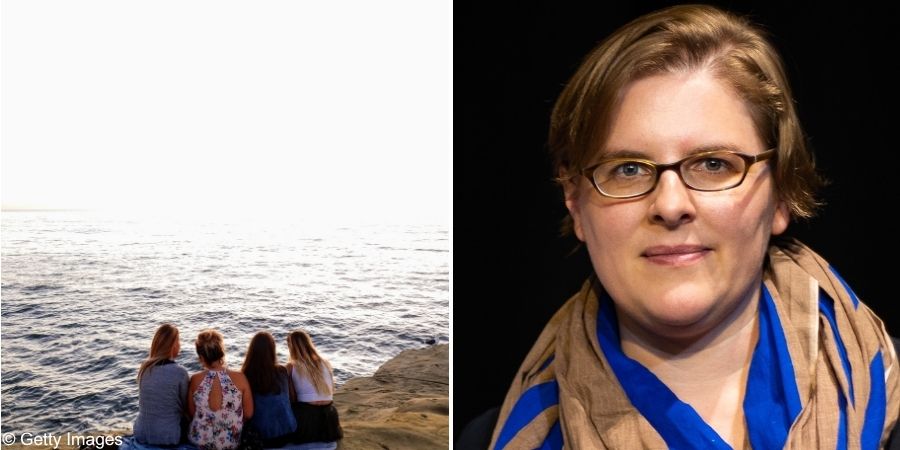
Friendship is more than just a social construct – it is a powerful two-way bond that helps us lead healthier and longer lives, while loneliness can lead to poor physical and mental health.
A new project led by Antonia Hamilton will focus on understanding how our cognitive mechanisms and behaviour help us build and maintain these vital social connections. The research will be based on the SyncShareBond model, a new idea suggesting that three main factors – synchrony (moving together), homophily (having things in common), and tasks (working together) – are key influences on how we form friendships.
In both small- and large-group experiments, Hamilton’s team will measure the participants’ brain activities as well as their bodily reactions, such as motion and heart rate, while performing certain tasks. In doing so, the researchers aim to understand how working on tasks together, moving in sync with others and sharing common interests make it easier for us to develop friendships and how these social bonds grow and change over time. Using these insights, the team hopes to provide strategies that could help reduce feelings of loneliness and improve our overall well-being.
Antonia Hamilton is currently a professor and leader of the Social Neuroscience group at the Institute of Cognitive Neuroscience, University College London (UCL).
- Researcher: Antonia Hamilton
- Project: SocBond – the mechanisms and behaviours that create friendship (SocBond)
- Host Institution: University College London (UK)
- ERC funding: €2.41 million over 5 years

